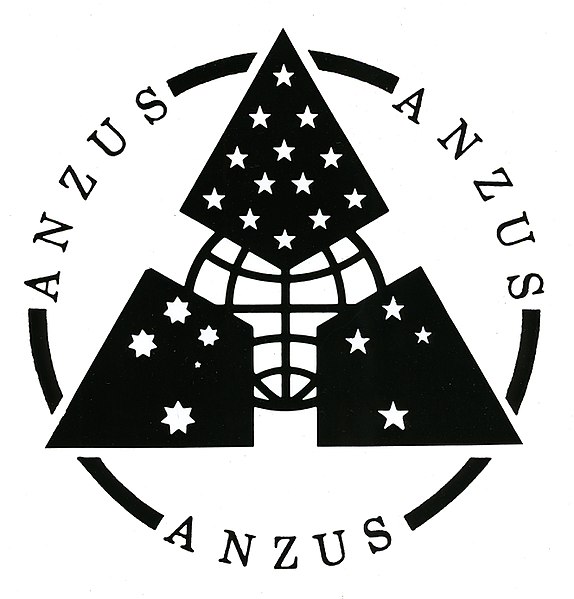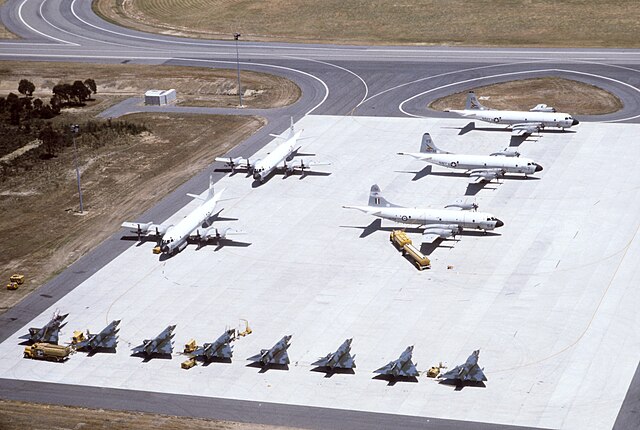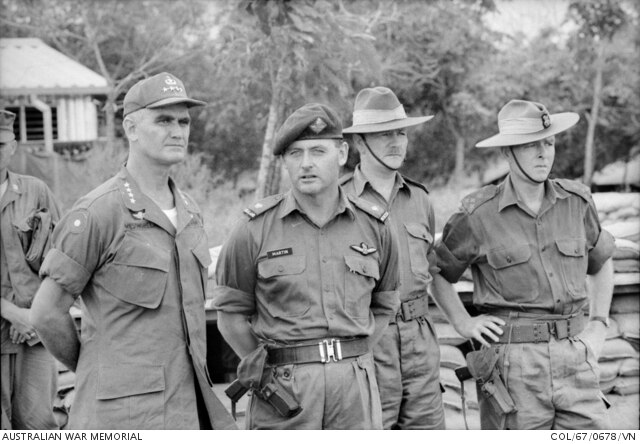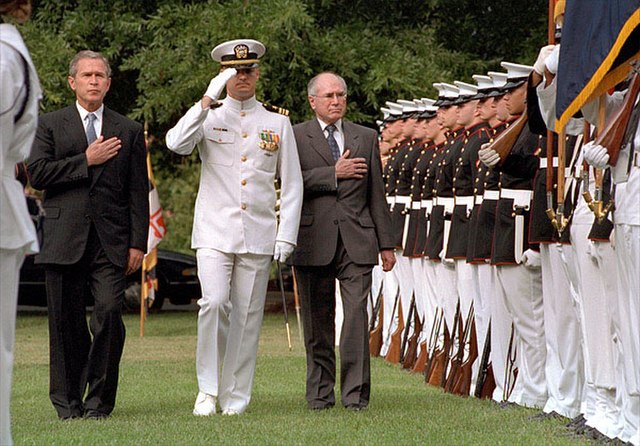New Zealand in the Vietnam War
New Zealand's involvement in the Vietnam War was highly controversial, sparking widespread protest at home from anti-Vietnam War movements modelled on their American counterparts. This conflict was also the first in which New Zealand did not fight alongside the United Kingdom, instead following the loyalties of the ANZUS Treaty.
New Zealand artillerymen carry out a fire mission in South Vietnam
New Zealand, U.S, and Australian military police meet with a local Policeman in Saigon, Vietnam
Gunners of 161 Battery RNZA conduct a fire mission during Operation Coburg, 1968
New Zealand Forward Observers with a Sergeant from 7RAR, Vietnam 1967
The Australia, New Zealand, United States Security Treaty is a 1951 non-binding collective security agreement initially formed as a trilateral agreement between Australia, New Zealand, and the United States; and from 1986 an agreement between New Zealand and Australia, and separately, Australia and the United States, to co-operate on military matters in the Pacific Ocean region, although today the treaty is taken to relate to conflicts worldwide. It provides that an armed attack on any of the three parties would be dangerous to the others, and that each should act to meet the common threat. It set up a committee of foreign ministers that can meet for consultation.
ANZUS
Australian, New Zealand, and United States aircraft during a military exercise in 1982
U.S General Westmoreland talks to the commander of the New Zealand artillery battery alongside Australian senior officers in Vietnam, in 1967.
Australian Prime Minister John Howard and US President George W. Bush on 10 September 2001. Howard was in Washington during the 11 September attacks.








